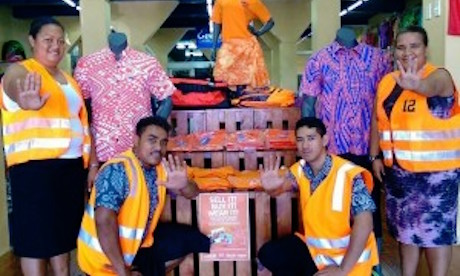In Samoa the 25th of every month is celebrated as ‘Orange Day’, initiated and led by the UNiTE campaign Global Youth Network.
Orange Day calls upon activists, governments and private sector to mobilise people and highlight issues relevant to preventing and ending violence against women and girls, not only once a year, on 25 November (the International Day for the Elimination of Violence against Women), but every month.
This week a column in the Samoa Observer says that religious leaders have the power to introduce ideas of respect and equality in their congregations.
They possess an ordained role of leadership in their institutions and communities, serving as role models of care and compassion to transform societal or religious norms or practices that perpetuate such violence.
While leaders can call upon these communities to assist women who are facing G.B.V, they also can offer support, counselling, and guidance to those who perpetrate violence as the voice of accountability in communities.
Churches and faith based organisations that work with men and boys help accelerate progress in preventing and ending violence against women and girls. They can begin to challenge the deeply rooted inequalities and social norms that perpetuate men’s control and power over women and reinforce tolerance for violence against women and girls.
Leaders also can take advantage of faith networks and work across faiths to remind communities that G.B.V violates dignity and human rights and that their faiths call upon them to be merciful, caring, and loving toward all.
Source
Additional readingNews category: Asia Pacific.




